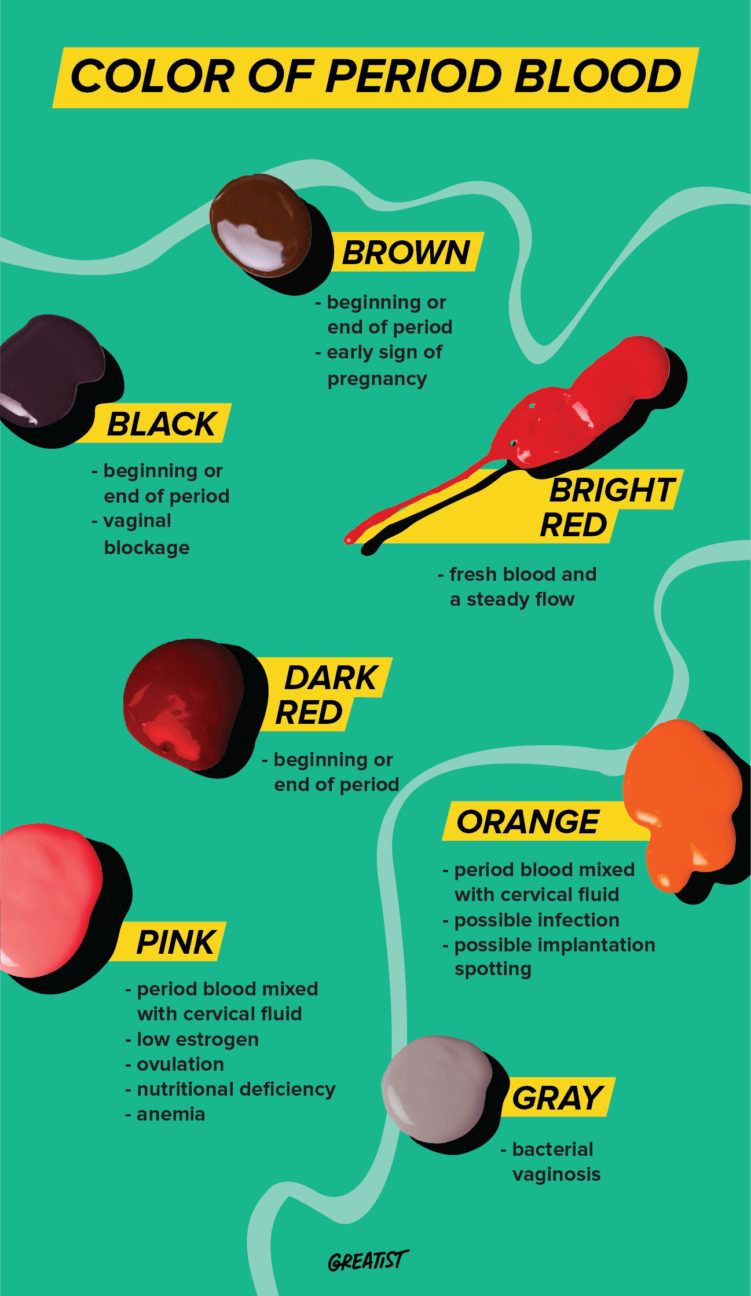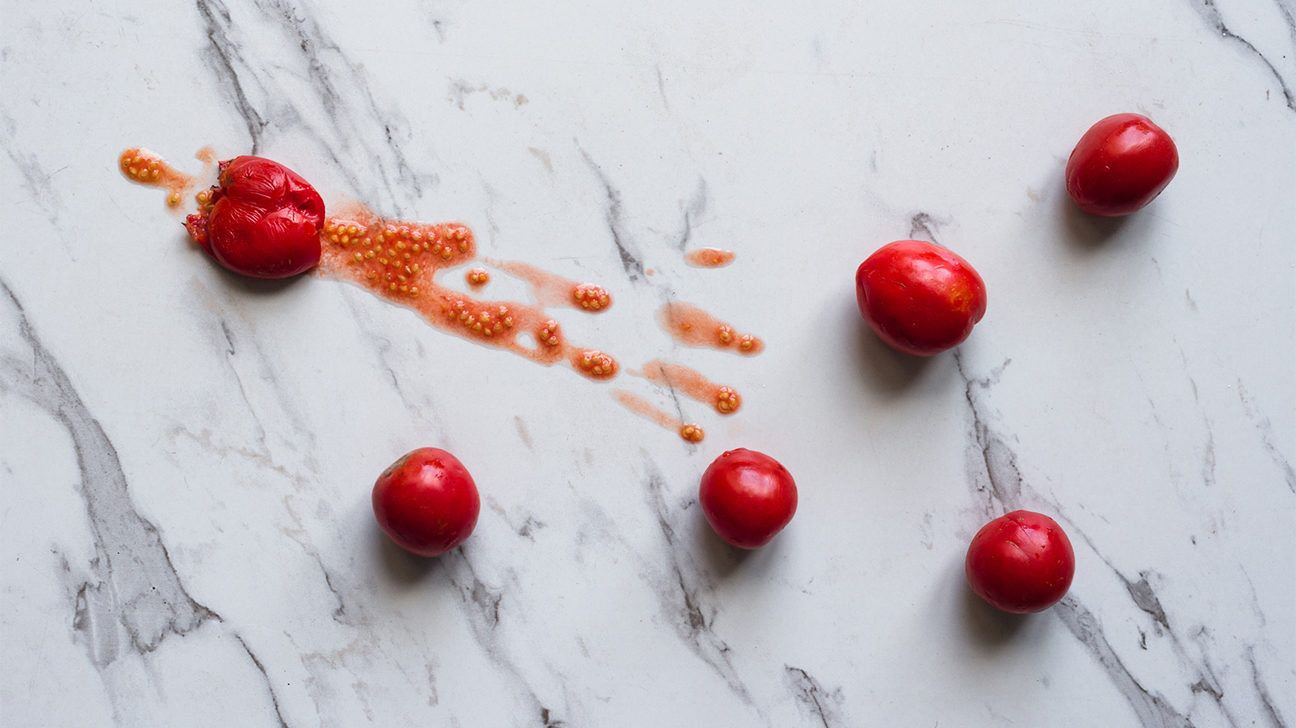Your period isn’t due for a while, but you’re spotting. So rude, right?
Light bleeding in between your periods can happen for lots of reasons. One of them is ovulation, when your ovary releases an egg in the middle of your menstrual cycle. (Don’t worry — it doesn’t mean that anything’s wrong or that you’re pregnant.)
So how can you tell if that’s what you’re dealing with, and what should you do about it? Here’s all the info you need.
Ovulation bleeding is bleeding that happens when you — you guessed it! — ovulate. That’s the part of your menstrual cycle when your ovary releases an egg.
Usually the bleeding is super light, falling more into spotting territory. And it’s not all that common. Research shows that only about 3 percent of women experience bleeding during this part of their cycle.
When does ovulation bleeding typically happen?
Ovulation bleeding can occur when your ovary releases an egg, which happens in the middle of your menstrual cycle — anywhere from 11 to 21 days after your last period. (Your period happens at the beginning of the cycle.)
But it doesn’t always occur on the same day every month. For many women, ovulation can vary by a few days.
What causes ovulation bleeding?
It all comes down to hormones. For some women, changes in estrogen, progesterone, and luteinizing hormone can trigger light spotting during ovulation.
How long does ovulation bleeding last?
Ovulation doesn’t go on for very long, and neither does the bleeding that can occasionally come with it. At most, spotting caused by ovulation will last a day or two.
What does ovulation bleeding look like?
It’s typically more like spotting than full-on bleeding. Ovulation bleeding tends to be very light, to the point where you only need a panty liner (or maybe just a tissue, honestly).
Colorwise, it’s usually pale pink. That’s because the blood is mixed with cervical fluid, which increases during ovulation.
What does ovulation bleeding feel like?
Most women don’t feel anything, really. But ovulation spotting can come with mild versions of the side effects you usually get during your period. Think dull cramps (especially on one side of your abdomen), breast tenderness, or bloating.
The next month the pain may be on the other side, since most women’s ovaries take turns ovulating.
Some women may have a sharp, sudden pain as the egg is released. Ovulation pain, also called Mittelschmerz, is rarely a serious issue (and the name is kinda fun to say).

Spotting in general refers to any vaginal bleeding that happens outside of your monthly period. Regardless of the cause, it tends to look the same (pale pink), have a super light flow, and last for only a day or two.
Spotting can also happen because of implantation — when a fertilized egg attaches to the lining of your uterus. Implantation spotting is a possible sign of very early pregnancy. It happens in about 25 percent of pregnancies and looks pretty much the same as ovulation spotting.
But you can often tell the difference by the timing: Ovulation spotting usually occurs in the middle of your cycle, but implantation spotting will happen a few days before your next expected period.
If you can’t tell what you’re dealing with based on the calendar, a home pregnancy test can give you the answer.
A positive result means the spotting was from implantation, and a negative suggests it could be from ovulation. If you get a positive test result, make an appointment to see your healthcare provider.
Ovulation and implantation aren’t the only causes of spotting, though. Bleeding outside of your period can also come from uterine fibroids, STIs, changes in birth control, or abdominal bleeding. In rare cases, spotting could be a sign of some cancers.
Can ovulation bleeding be heavy, like a period? Not usually. Bleeding caused by ovulation is light — more like spotting than period-level bleeding. It tends to be pale pink instead of blood red and lasts for only a day or two.
Bleeding that’s red-red, goes on for more than a day or two, or is heavy enough to need a pad, tampon, or menstrual cup is probably a period.
If the timing for your period doesn’t seem right, you could just be having an off cycle. (Not everyone’s periods come on the same day every month!) But if it seems way outside your norm, it’s never a bad idea to call your doc.
If you’re soaking a pad or tampon every hour, go to the emergency room.
Timing is one thing that could tip you off that your spotting is related to ovulation. But there are other clues as well.
Ovulation-related spotting can also come with:
- more vaginal discharge, or discharge that looks like thicker, like egg whites
- higher sex drive
- dull abdominal pain, especially on one side
- breast tenderness
- bloating
- changes in your basal body temperature (a drop before ovulation and then a quick upswing afterward)
Trying to keep tabs on your ovulation because you’re trying to get pregnant? You don’t necessarily just have to rely on watching for vague physical symptoms.
You’ll get more accurate info with an over-the-counter ovulation test. The simple at-home kit tests your urine for luteinizing hormone, a hormone that spikes right before and during ovulation.
Light spotting that lasts for a day or two isn’t usually a big deal. Most women will experience it once in a while, and as long as you aren’t having other symptoms, there’s no reason to call your healthcare provider.
But you should see your doc if the spotting goes on for more than a couple of days, gets worse or seems to happen often, or comes with other symptoms like dizziness, fever, severe or long-lasting abdominal pain, easy bruising, or abnormal vaginal discharge.
Those issues could be signs that your spotting is related to something other than ovulation.
Also, remember that spotting can sometimes be a sign of early pregnancy. If you suspect your spotting is related to implantation, take a home pregnancy test. If the result is positive, see your doctor to confirm it and begin your care.
tl;dr
- Ovulation bleeding is light spotting that occurs when your ovary releases an egg.
- It typically happens during the middle of your cycle (whenever you’re ovulating).
- It’s relatively common and usually harmless.
- Give your doctor a call if the spotting lasts for more than a few days or if you have any unusual symptoms along with it.


